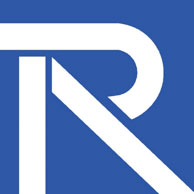China, Trade and Biden’s balancing act point to more onshoring.
By Steve Anton, President of Rahco Rubber
In addition to the pandemic and amid the growing complexities of our global economy, President-elect Biden will take office in January and face deep dilemmas and unfinished business stemming from President Trump’s multiyear onslaught against China.
Trump placed tariffs on Chinese products, imposed sanctions and restrictions on Chinese companies to strongarm a change in trade practices, and still shows no signs of letting up in his final days in office. Biden must decide whether to maintain tariffs or relax such levies in exchange for economic compromises or other concessions, like climate change. He and his advisers say they want to take a smarter approach to drive collaboration, but also maintain leverage over China to accomplish policy goals.
This recent New York Times article — Biden’s China Policy? A Balancing Act for a Toxic Relationship — does a nice job breaking down the issues and outlining the hypotheticals, but largely underscores the fact that we are likely facing a period of continuing uncertainty on the U.S.-China front.
At Rahco Rubber, we acknowledge that the ever-changing global economy undoubtedly adds new layers of complexity to the supply chain — and there is no reason your component should be delayed or come at a higher cost. So, what is best for OEMs and suppliers? Is onshoring the answer?
While Biden has pledged to devote more resources to enhancing American manufacturing capacity, infrastructure and technological development, many U.S. manufacturers have already re-evaluated production and sourcing and realized major benefits of onshoring for large-volume of high-quality products.
In the molded rubber category, an uptick in reshoring began years ago with motivations tied to quality standards and reducing supply chain exposure. This resurgence was largely due to an unbalanced increase in production costs with a steady, and even declining standard for quality. For example, long before Trump [from 2000 to 2016], indexed manufacturing labor costs increased 400% in China, compared to only 2% in the U.S. Other commonly cited costs include inventory carrying costs, shipping, travel expenses and communications issues, rising offshore wages, as well as intellectual property risks.
In the last few years, macro trends, trade war realities, regulations, and pandemic-related disruptions have further made the case clear for onshoring across industries, as OEMs realize the total costs of ownership of Made in USA components to be lower on average and declining.
Because of this — and the uncertainty looming across regulatory and trade policy — the supplier and OEM partnership will become more important than ever, and companies that can source a local supplier will gain the advantage.
Whether doing business locally or across borders, when producing or assembling parts, OEMs should turn to suppliers that can truly address supply chain gaps and overall manufacturability through design enhancements, advanced product quality planning, and material offsets — such as Rahco Rubber.
Time to market can be reduced by leveraging fast prototyping, mold development and production, with secondary operations. For example, Rahco customers often find it easier and more cost effective for it to perform various assembly operations. This can range from simple packaging of various components to highly automated cells for part assembly and boxing, rubber part slitting and robotic part removal of molded parts.
Along with automated production processes, OEMs should source vertically integrated suppliers that work as partners. Rahco’s on-staff chemists and engineers works with customers as an extension of their staff to design, improve and optimize parts that meet lifestyle demands, mitigate risk, and help build sustainable, competitive advantages.
Of course, there are good reasons to source some products and components from low-cost countries, including producing or sourcing components to meet demand for products in such foreign markets.
If you continue to do business with foreign manufacturers, make sure they understand the pace needed to launch new products, process efficiency techniques, like design for manufacturability, and can produce parts to exacting specifications. Don’t sacrifice quality or reliability. Most importantly, your product shouldn’t break or wear out because the components are made poorly.
Rahco Rubber is offering a no-obligation, risk-free analysis to not only validate your material formulation, but ensure all designs and components are optimized for performance, cost efficiencies and manufacturability. To learn more, please contact Rahco or take advantage of its complimentary testing services online.
 Rahco Rubber, Inc. is an ISO 9001:2008 & 2015 Certified, vertically integrated manufacturer of custom-engineered, precision molded rubber components and sealing solutions. It formulates and optimizes advanced polymer materials, produces highly-engineered rubber parts to exacting specifications, with zero defects, and facilitates secondary operations in-house. Since 1967, Rahco has built a reputation as a best-in-class supplier and value-added partner to the nation’s most sophisticated manufacturers, OEM’s and Tier I & II suppliers. It is a family owned and operated business that embraces a customer-focused philosophy based on trust, dedication to delivering the highest quality and lean manufacturing excellence. For more information, please visit https://rahco-rubber.com.
Rahco Rubber, Inc. is an ISO 9001:2008 & 2015 Certified, vertically integrated manufacturer of custom-engineered, precision molded rubber components and sealing solutions. It formulates and optimizes advanced polymer materials, produces highly-engineered rubber parts to exacting specifications, with zero defects, and facilitates secondary operations in-house. Since 1967, Rahco has built a reputation as a best-in-class supplier and value-added partner to the nation’s most sophisticated manufacturers, OEM’s and Tier I & II suppliers. It is a family owned and operated business that embraces a customer-focused philosophy based on trust, dedication to delivering the highest quality and lean manufacturing excellence. For more information, please visit https://rahco-rubber.com.

Steve Anton
Steve Anton is the President of Rahco Rubber, a vertically integrated manufacturer of custom-engineered, precision molded rubber components and sealing solutions. His well-rounded knowledge of the rubber industry began in 1976, when he then took on his leadership role at the company his father co-founded. Since then, his work has been instrumental in advancing the industry and the overall success of the company — evolving from three employees, four machines, in less than a 5,000 sqft work space to what it is today; with over 100 employees, nearly 50 presses, compounding machines, fully equipped research and development and quality control labs, secondary automation cells and offices in a 60,000 sqft location. Steve was named Rubber Industry Executive of the Year (2016) by Rubber & Plastics News, has been recognized by Governor of the State of Illinois Bruce Rauner, and remains involved with many of the industry and business associations (such as ARPM, Rubber Division, ACS., Des Plaines Chamber of Commerce and the Illinois Manufacturing Association).
https://rahco-rubber.com/ | 847-298-4200
Scott Ellyson, CEO of East West Manufacturing, brings decades of global manufacturing and supply chain leadership to the conversation. In this episode, he shares practical insights on scaling operations, navigating complexity, and building resilient manufacturing networks in an increasingly connected world.